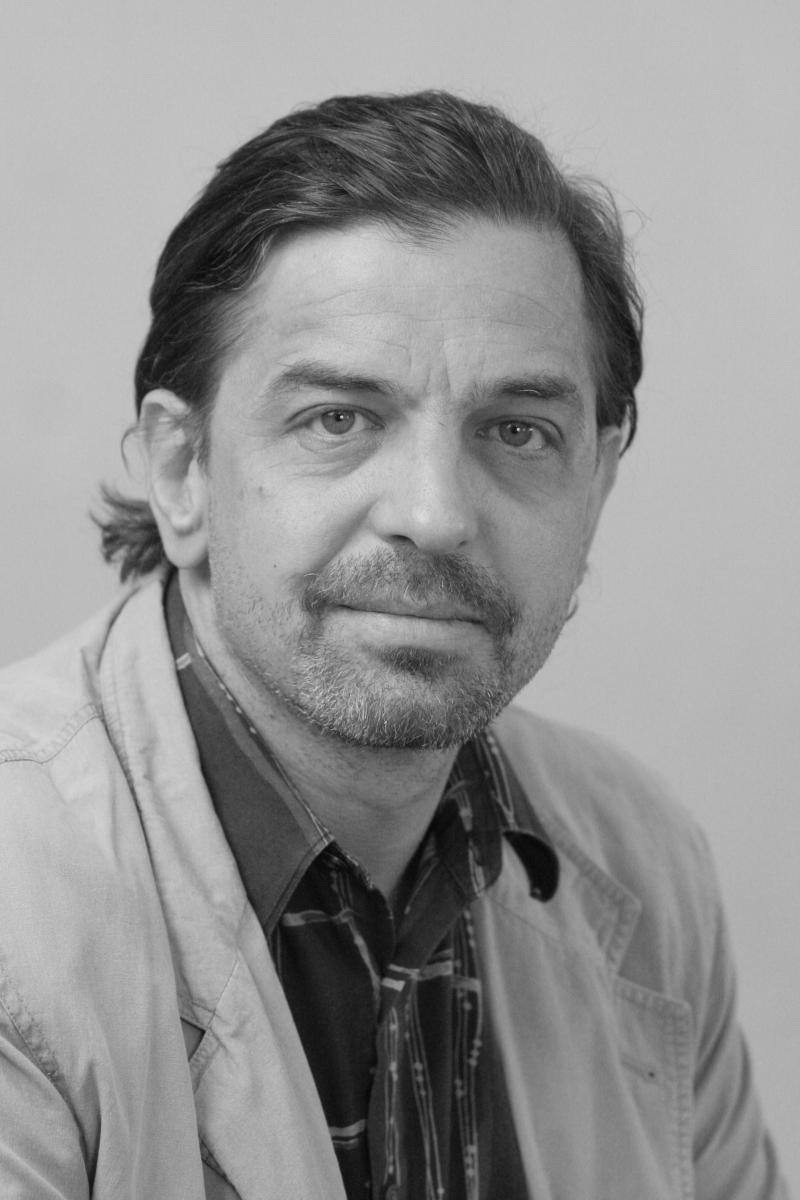Interview: Sergey Kuryshev Talks THREE SISTERS
 Sergey Kuryshev is a titan of the Russian stage, a highly-regarded interpreter of Chekhov, an occasional film star, and a mainstay of St. Petersburg's Maly Drama Theatre.
Sergey Kuryshev is a titan of the Russian stage, a highly-regarded interpreter of Chekhov, an occasional film star, and a mainstay of St. Petersburg's Maly Drama Theatre.
Sergey and the Maly are bringing their acclaimed production of Chekhov's Three Sisters to London's Vaudeville theatre this June. In advance of his next trip to England, Sergey spoke about how British audiences appreciate Chekhov, the themes of Three Sisters, and what we all need to find inner strength.
You've performed in London before - how are British audiences different from those in Russia?
Russian audiences, when they watch the classics - Tolstoy, Dostoevsky, Chekhov in particular - are usually serious as death, because they respect their classics a lot. British audiences, as I feel it, are more free when they walk in to watch Chekhov. They are not suppressed by the fact that this is the author we Russians all study in school from very early on. British audiences just feel more liberated.
In fact, when the British watch Chekhov, some situations and some lines come across with less baggage. And because British audiences are much freer, I think they feel Chekhov's humour much better. Though Chekhov is not famed for it, there is a lot of humour in his plays - especially Three Sisters.
Just to give you an example, we did Uncle Vanya last year at the Haymarket, and at the start of the play, Marina asks, "Did you want some vodka, perhaps?" and Astroff responds, as per Chekhov, "No, I don't want any vodka, I don't drink vodka every day." In Russia, usually, this line is met with a sort of grave silence, maybe a bit of respect, because 'Wow, he doesn't drink every day? Well done!' But in Europe and in the States, in France, in London, the audience laughs, because I think they get the inherent humour that Chekhov has put into this line.
Chekhov does have a lot of humour! It's just that Russia is not the best-equipped nation to get that.
So Three Sisters - other than some good comedy, what can we expect from this production?
The critics of Chekhov's time called The Seagull 'six pounds of love' - but I would say then that Three Sisters is twelve pounds of love, because the play is filled with love and passion. There are many young men in the play, and several young women, and you see their relationships. And it's like in life, where there are people, there are interrelationships, and they are always very accessible.
You know, all the characters of Three Sisters dream about a better life that will come in the future. If you ask any person on the street in London, I'm sure everyone dreams about the future that's got to be better than this life we're living now. Women in the play want to find love, want to get married, and these women don't only want love, they want a higher love, they want ideal love - which I think is very human. And it just seems with our characters that this ideal life, and ideal love, has to be situated in Moscow - the place they yearn to go to. I think any young person in the world living in a smaller town yearns for the capital, because real life has to be there.
And yes, our characters talk a lot. But smart, intelligent people tend to talk a lot, even nowadays. There is a literary theory that Chekhov's characters don't do anything, they just talk. But actually, they act by talking, by finding out how you get to the better life that has to exist. By this philosophical talk, they at least are trying to better themselves.
As always happens in life, even nowadays, the end is not at all a happy end. As the sisters themselves say in the final soliloquy, our life is not finished yet, we have to go on living. It is a very courageous and modern outlook on life - it doesn't matter how difficult it looks, how gloomy it seems, how impossible it seems, we have to go on living. We don't have an alternative. I think this is a very courageous approach to living one's life.
Going back to your question, about what the audience can expect: I think the audience can expect a very relevant story of people exactly like us.
Would you call it an uplifting play, then? Or will we leave the theatre with an unhappy ending on our minds?
We do this show a lot at home and on tour - we've done it in New York, Washington, London, Paris, and Milan - so I can draw on the experience of talking to foreign and Russian audiences after the show. I hope that the London audience, after they watch the show, after they get out of the theatre, they spend at least an hour or two, or a day, thinking about their own life, and what Chekhov thinks a life should be like. And maybe that would help the audience get some more inner strength, which we definitely need nowadays to confront life.
Chekhov did not aim at utter hopelessness. We're trying to be true to the playwright, we're following in his steps. It's not our aim to make the audience as distressed as possible. I think the great theme in Three Sisters is that you have to think about how you're living your life, and what you're living your life for. And by examining that, you hopefully get more strength to carry on. I think in a way it is an uplifting message.
Three Sisters at the Vaudeville Theatre 19 June - 29 June
Comments
Videos

